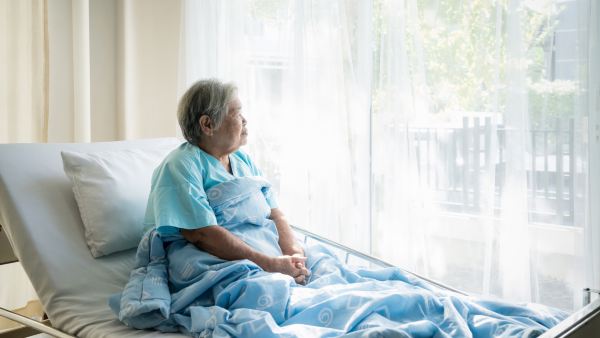
Your cell phone rings in the middle of your work day. It’s your brother calling to tell you that something happened with mom’s heart and she’s in the hospital. It’s a very scary call. Almost as scary as trying to figure out what to do next. The information here will help you know what your next steps should be.
Keep this on your radar
Don’t assume the older adult’s spouse or partner is able to be their advocate. Between the stress of the situation and a generation that may not be comfortable questioning doctors, hands-on support from you or someone else in the family (even virtually) may be necessary.
Keep an eye out to help manage the non-hospitalized partner’s stress and needs. Their circle of friends can be called upon to help with transportation to and from the hospital, meals or companionship. It’s a generation that is used to showing up in times of need.
When you live far away from the older adult
- First, call the hospital’s nurse desk and make sure they have your name, number and relation to the patient.
- If the current status or care plan is unclear to those involved, ask the nurse to connect you with the Social Worker on staff. The Social Worker can arrange a meeting with the doctor who can explain the situation.
- “Do I need to be there?” It’s the million dollar question. If you aren’t sure if you should be there in person, ask the nurse and/or doctor if they would recommend that a family member be present.
- Don’t be afraid to call the nurse desk for updates. The ideal time frame to reach them is likely between 12-5pm since it’s after morning rounds and between shift changes.
Keeping track of it all
Keep detailed notes capturing the names, titles and dates of who you speak with and their role in the care being provided. Frequently there are various care providers and it’s easy to lose track of who said what and when. You can download the Notes During a Hospital Stay template, which offers suggested questions for the medical team and space for notes.
The Ways & Wane GoKit Medical Planner is a great place to keep these notes. Once you’ve set it up to use, the older adult’s PCP, list of allergies and medicines can be found there. Additionally, the portable GoKit Planner has slots for insurance cards, IDs and envelopes for copies of care directives.
The hospital discharge process
- Use the GoKit Medical Planner’s suggested questions to ask prior to discharge and keep notes there. Or download our Hospital/Nursing Home Discharge form with suggested questions and space for notes.
- Go through the discharge notes with the nursing staff in order to clarify any questions.
- Make sure to explain the home environment to the care providers, specifically if there are any steps in the home, a spouse who cannot manage care needs for another, a lack of transportation to get prescriptions or to receive follow-up care, etc.
- If the doctor deems medical equipment to be necessary (such as a shower chair or bed side commode) it is usually covered by a regular Medicare policy.
IMPORTANT: If the older adult is being discharged to a rehabilitation facility, they will likely receive a list of facility options from the Social Worker. This is usually a pre-formulated list of options, but they are not vetted or screened in any way. In fact, there have been numerous times we have found that the list provided by the hospital included rehabilitation facilities that have been flagged for abuse.
